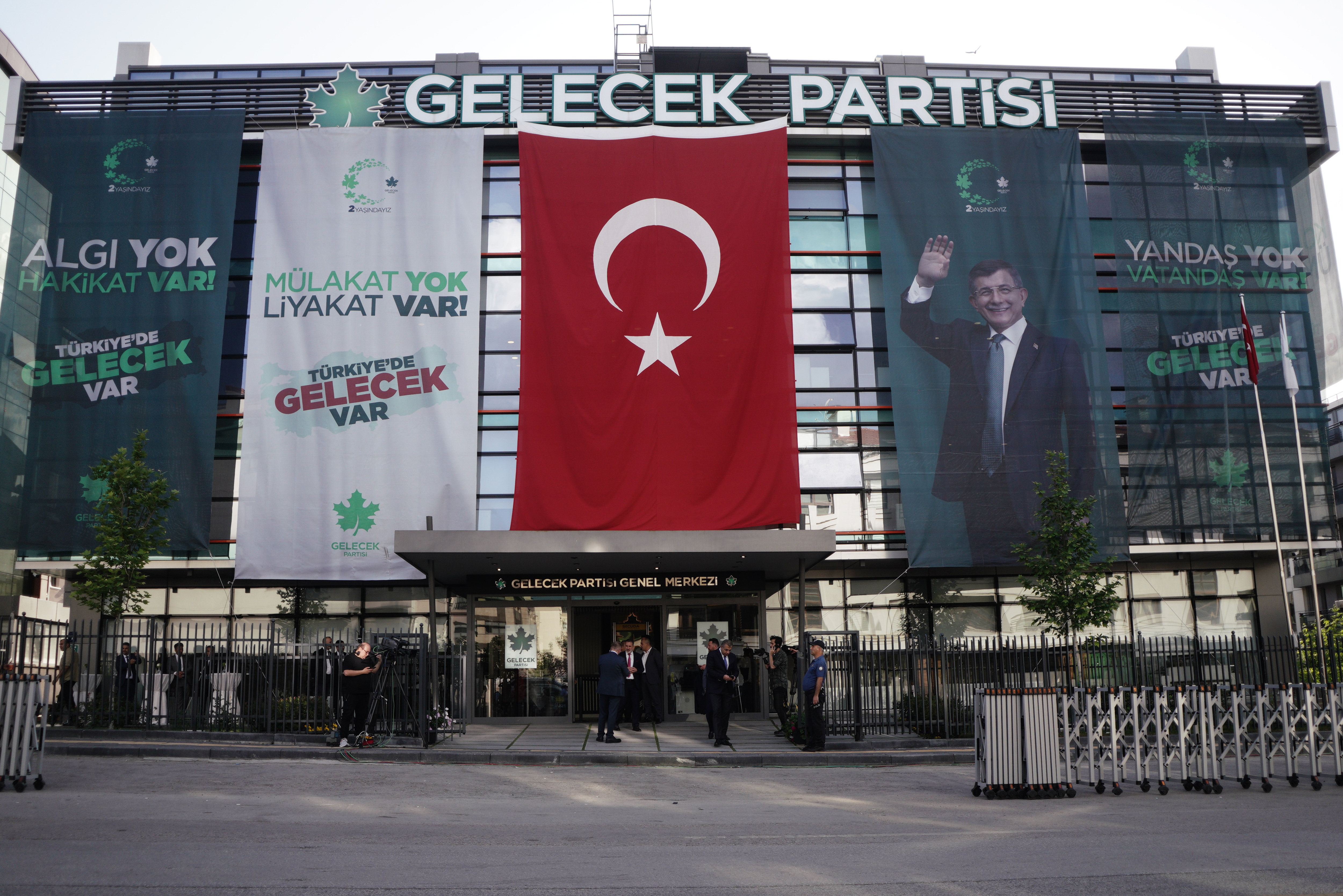Ahead of Turkey’s 2023 elections, a six-party opposition bloc is working together to unseat President Recep Tayyip Erdoğan and his Justice and Development Party (AKP) and restore the country’s parliamentary system. This comes against the backdrop of a growing economic crisis as public opinion polls show support for the president and the AKP is falling. How reliable are these polls? Can the opposition beat Erdoğan? What is its election strategy? Who is most likely to be the bloc’s presidential candidate? Despite the country’s growing economic, political, and social problems and the opposition's efforts to form a unified front, can Erdoğan still win? Please join us on Friday, June 10, at 11:00 am EST to discuss these questions and much more with an excellent expert panel.
Speakers:
Berk Esen
IPC-Stiftung Mercator Fellow, Center for Applied Turkey Studies, German Institute for International and Security Affairs; Assistant Professor of Political Science at the Faculty of Arts and Sciences, Sabancı University, Turkey
Ersin Kalaycıoğlu
Senior Scholar, Istanbul Policy Center; Professor, Sabancı University
Ali Çarkoğlu
Professor, Koç University, Istanbul, Turkey
Gonul Tol, moderator
Founding Director of Turkey Program; Senior Fellow of the Frontier Europe Initiative, MEI
Five Key Takeaways
- Economic considerations and party identification play an important role in determining Turkish voter behavior: Dr. Çarkoğlu explained that voters’ perspective on the state of the economy is influenced by their party identification. While supporters of the opposition parties might perceive economic failure, Justice and Development Party (AKP) voters discern a more favorable picture.
- Turkish voting is defined by two polarized modes of identity: Dr. Kalaycıoğlu described how voters are distinguished by 1) ethnic identity, separated between the Turkish and Kurdish poles and 2) religious identity, separated between the Sunni Orthodox Revivalist and secular poles. President Erdoğan’s strategy has been to champion the Turkish nationalists and Islamic revivalists as the core of his AKP voter base.
- Foreign policy has an important effect on domestic politics: Dr. Çarkoğlu argued that President Erdoğan has instrumentalized foreign policy as a campaign tool. For example, Erdoğan’s aggressive incursions in Syria and Iraq have energized his nationalist voter bloc and mobilized public opinion in his favor. Dr. Esen added that Erdoğan’s popular foreign policy has limited opposition parties’ latitude to campaign against him.
- The opposition bloc’s strategy to emphasize a shift to parliamentarism might be ineffective: Dr. Çarkoğlu explained that the opposition parties have committed to returning Turkey’s political structure from presidentialism to parliamentarism, yet the average Turkish voter will not link Erdoğan’s poor performance to governmental structure. The opposition bloc could find greater success in highlighting Erdoğan’s mistakes as an individual instead.
- The Republican People’s Party (CHP) has reached its limits: Dr. Çarkoğlu identified that the CHP has been unable to surpass 25% at the voter polls. The panel agreed that there are poor prospects for moving beyond this number with Kılıçdaroğlu as the party leader. The CHP has proposed no concrete economic reforms and his political discourse does not appeal to young voters.
Detailed speaker bios
Berk Esen
Berk Esen is an IPC-Stiftung Mercator Fellow in the Center for Applied Turkey Studies (CATS) at the German Institute for International and Security Affairs (SWP) and Assistant Professor of Political Science at the Faculty of Arts and Sciences, Sabancı University, Turkey. His research interests include the political economy of development, party politics, and authoritarian regimes with a focus on Latin America and the Middle East. Berk has received numerous prestigious awards, including the Sakıp Sabancı International Research Award for his work on democratic backsliding in Turkey and Hungary and the Turkish Science Academy Young Scientist Award (BAGEP).
Ersin Kalaycıoğlu
Ersin Kalaycıoğlu is a Senior Scholar at the Istanbul Policy Center and Professor at Sabancı University’s Faculty of Arts and Social Sciences since September 2007. Currently, Kalaycıoğlu is a Board Member of the Turkish Economic and Social Studies Foundation and also a member of the Turkish Political Science Association, Turkish Social Science Association, and Middle Eastern Studies Association of North America (MESA). Kalaycıoğlu has designed and conducted a broad range of survey research projects that have contributed immensely to social sciences. The most notable among Kalaycıoğlu’s research are the “Political Conditions of Rural Economic Development Project” (with İlter Turan, 1978-1980), “The Turkish Grand National Assembly (TGNA),” “Turkish Values” (with Üstun Ergüder and Yılmaz Esmer, 1990), and “Socio-political orientations and attitudes in Turkey” (with Ali Carkoglu, 2006).
Ali Çarkoğlu
Professor Ali Çarkoğlu is an Academic Board Member and Professor of International Relations at Koç University, Istanbul, Turkey. His recent research focuses on voting behavior, party systems and political parties, religiosity, social capital, public opinion, and Turkish politics.
Photo by Tunahan Turhan/SOPA Images/LightRocket via Getty Images












